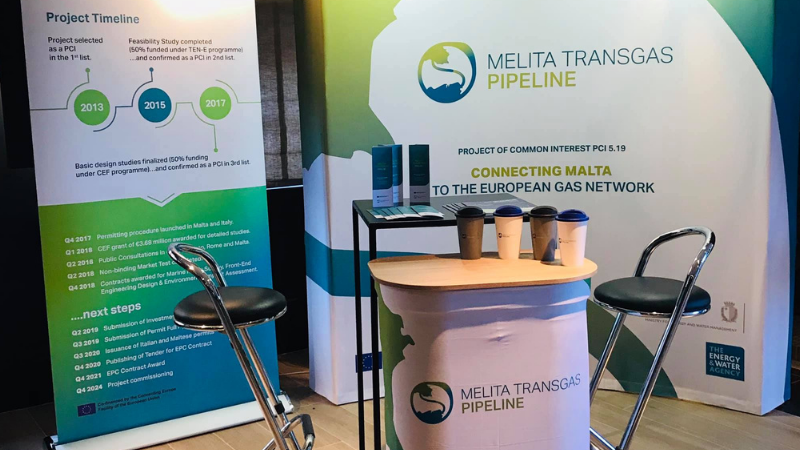Five international eNGOs issued an urgent statement to call on EU parliament representatives to vote against the current list of EU Projects of Common Interest (PCIs) given that the selection criteria are still based on outdated regulations that “do not consider the EU’s climate targets”, including the Maltese government’s gas pipeline proposal.
In their statement, the eNGOs referred to a political agreement reached in December of last year by representatives of all EU institutions. Besides highlighting key objectives which align with the EU’s Green Deal, the agreement specifically “accepts the general principle that the regulation should no longer provide support for fossil fuel infrastructure”.
However, in spite of this agreement, the list of projects of common interest is based on regulations drafted in 2013, and it is up for a vote in front of the parliamentary committee on industry, research and energy today and a final vote in front of the EU parliament on 7 March.
In fact, the current list which is up for its voting round contains 30 projects which are fossil gas-based. At most, the EU’s political agreement from December 2021 allows for ‘blended’ projects which include a mixture of fuel supplies up until 2029.
“A coalition of NGOs is asking MEPs to support a ‘motion to object’ to the 5th PCI list, as the list cannot be adopted without majority support by the EU parliament and Council. Rolling out additional, unnecessary fossil fuel infrastructure is not aligned with the aim of the European Green Deal, and risks creating stranded assets and locking Europe further into a fossil fuel future,” the statement reads.
Malta’s Melita TransGas Pipeline proposal envisages a 159km long pipeline stretching from Delimara to Gela in Italy, connecting the islands to the trans-European Gas Network while allowing for the possibility of transporting gas, renewable gases and hydrogen.
The international eNGOs also specifically called out the Maltese government’s gas pipeline project over its links with Electrogas, the consortium whose acquisition of a €5 billion power station tender in 2013 is the subject of an ongoing public accounts committee investigation following a damning audit report which had flagged numerous due diligence shortcomings.
“The approval of the Melita gas pipeline will have serious and long-lasting impacts on Malta’s energy system, in terms of the environmental impacts and associated carbon emissions, the lock-in into gas dependence, and the associations of Electrogas shareholders with corruption and the murder of Daphne Caruana Galizia,” the statement reads.
On Sunday, The Shift published an article that exclusively revealed how the tax commissioner exempted Electrogas from paying tax on profits expected on the completion of the Melita TransGas Pipeline project, amounting to an estimated €84 million windfall.
A long-standing campaign spearheaded by civil society and the Caruana Galizia family has issued repeated calls for the power station deal to be rescinded, especially in light of the public inquiry board’s assertion that the late journalist was killed in relation to information she was going to publish about the deal itself.
Multiple investigations into the deal have shed light on the extent of corruption surrounding the deal, including how disgraced former energy minister Konrad Mizzi, who oversaw the agreements signed with the consortium and had selected close associates to sit on tender evaluation committees, shifted a €40 million excise tax burden off Electrogas and onto the taxpayer in spite of the fact that the original terms of the tender stipulated the opposite.
One of the former lead shareholders of the project, Yorgen Fenech, has been held under arrest since 2019 on accusations of commissioning the murder of the journalist.
The international eNGOs who coauthored the statement are Friends of the Earth Europe, Food & Water Action Europe, CEE Bankwatch, Gastivists and Greenpeace.














by subsiding this project, the EU will help the corrupt to be more corrupt.